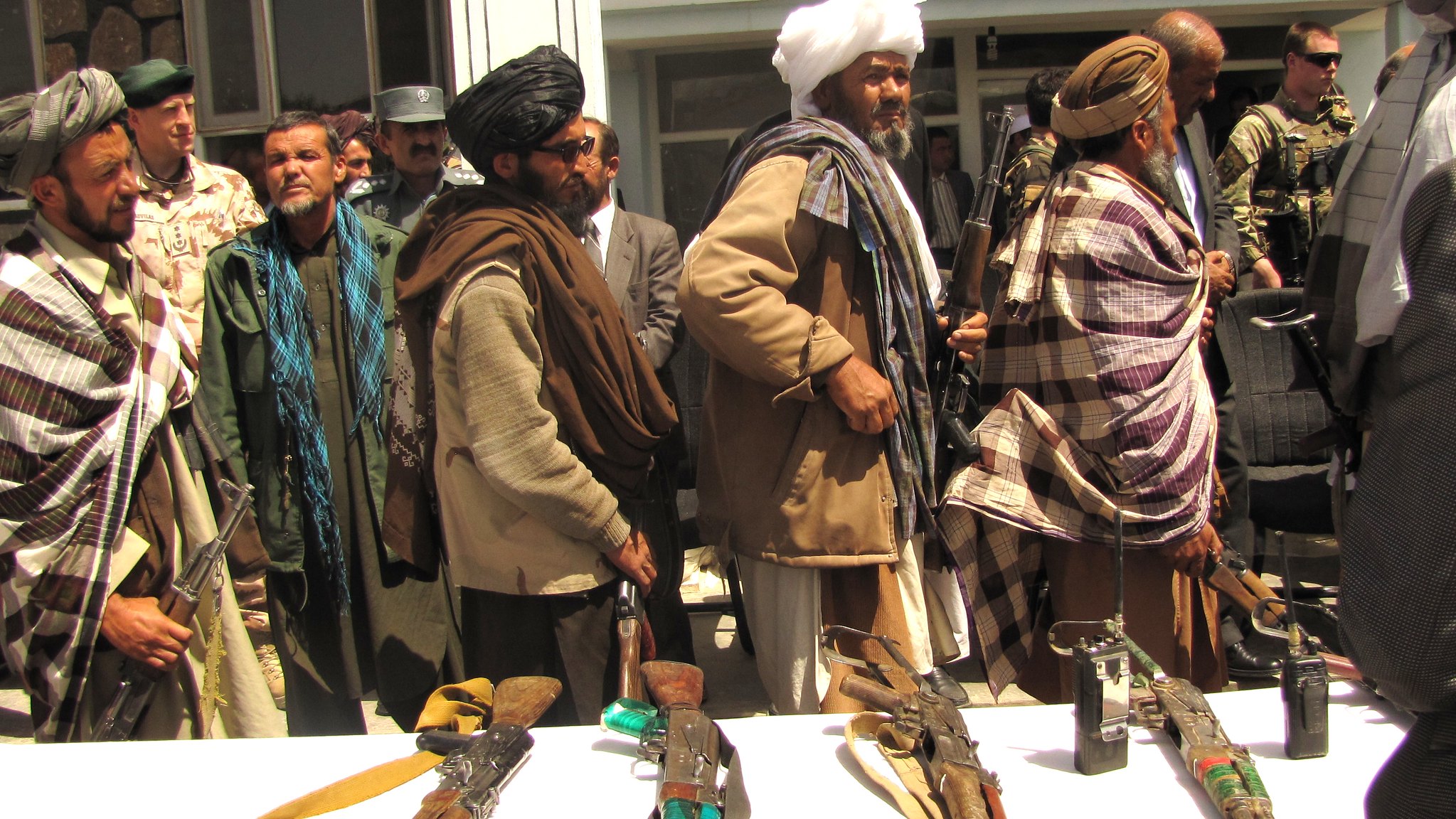Religious fundamentalists the world over have a great deal in common. Some are better at hiding it than others.

“Our ignorance of the Islamic State is in some ways understandable: It is a hermit kingdom; few have gone there and returned,” wrote Grahame Wood for the Atlantic way back in 2015 in a piece called “What ISIS Really Wants”.
At the time, the world’s worst terrorists seemed to be concentrated within the newly christened “ISIS”.
Around then ISIS was also, unfortunately for them as it turned out, attempting to run a terrorist operation and their own country out of the same location- which any first-year strategy student could have predicted would never work.
Perpetuating acts of terrorism against your neighbors- whereupon you kill innocent civilians while calling it a military strike- invites them to do only one thing to you- if they can find you. Which is why terrorist groups typically operate in secret and spread out, as Osama Bin Laden did- or are shielded by civilians, as in the case of Hamas.
Unlike Bin Laden, ISIS broadcast themselves constantly to the world- online magazines, websites, Twitter. As Wood and others have pointed out, “the Islamic State’s countless other propaganda videos and encyclicals are online, and the caliphate’s supporters have toiled mightily to make their project knowable.”
“We can gather that their state rejects peace as a matter of principle; that it hungers for genocide; that its religious views make it constitutionally incapable of certain types of change, even if that change might ensure its survival; and that it considers itself a harbinger of — and headline player in — the imminent end of the world,” warned Wood.
“Muslims can reject the Islamic State; nearly all do,” Wood reminded Atlantic readers. “But pretending that it isn’t actually a religious, millenarian group, with theology that must be understood to be combatted, has already led the United States to underestimate it and back foolish schemes to counter it.”
Wood is right: Islamists like ISIS and the Taliban aren’t to be conflated with all Muslims anymore than the Westboro Baptist Church should be conflated with all Christians. Westboro Baptist doesn’t even speak for all the Baptists.
The Taliban should, however, be openly recognized as a group of religious fundamentalists with weapons who hate gay people, Israel and America, despise women’s rights and insist upon the most brutal, reductive interpretation of their theology- under penalty of death.
The “new and improved” Taliban obviously learned a great deal from Bin Laden, a man who in Grahame Wood’s words, “corporatized terror and franchised it out.”
For years now, the Taliban has franchised out acts of terror to fringe groups- while always denying responsibility. In Afghanistan, it was always well known that enemies of the Taliban would often wind up dead. No one believed the group’s professed innocence.
Bin Laden’s Al Qaeda operatives too, “ navigated the modern world confidently,” noted Wood. “On Mohamed Atta’s last full day of life, he shopped at Walmart and ate dinner at Pizza Hut.”
The Taliban are, at heart, just like ISIS, even if they are savvy enough to pretend otherwise and blend in.
Like the religious fundamentalists we are more familiar with in the U.S., these strict adherents to a very skewed and narrow interpretation of a major faith tradition are operating on a values system difficult to reach by secular methods.
For instance, mid-western Christian religious conservatives opposing a casino in their county are doing so out of a sincere, deeply help religious belief that casinos are harmful to society.
All the arguments about tax revenues, new schools, community reinvestment, and tourism dollars will fall on deaf ears. They answer to a higher authority unimpressed with sin taxes.
So too the Taliban.
They will not act in opposition to the tenets of their sincerely held religious beliefs, even if it means being ostracized from the international community. Even if it means a crippling economic depression or sanctions. Even if it means depriving Afghanistan of half its educated work force.
Even if it means the end of the Taliban. But from Osama bin Laden, and the failures of ISIS, the Taliban has definitely learned better methods of PR to make sure that doesn’t happen.
ISIS made no secret whatsoever of its intentions: “We will conquer your Rome, break your crosses, and enslave your women,” wrote an official ISIS spokesperson to western audiences in its heyday. “If we do not reach that time, then our children and grandchildren will reach it, and they will sell your sons as slaves at the slave market.”
Though the Taliban isn’t foolish enough to openly make such pronouncements, understanding the religious extremism element in dealing with the Taliban is as critical to understanding them as it was to understanding ISIS.
Try to explain the machinations of the Westboro Baptist Church without mentioning religious fundamentalism. You could try, but it would be lying by omission to leave out that part. Doing so would create an inaccurate picture.
“Its rise to power is less like the triumph of the Muslim Brotherhood in Egypt (a group whose leaders the Islamic State considers apostates) than like the realization of a dystopian alternate reality in which David Koresh or Jim Jones survived to wield absolute power over not just a few hundred people, but some 8 million,” wrote Grahame Wood of ISIS in 2015.
The Taliban has conquered Afghanistan for only one reason- a reason shared by ISIS, the Khmer Rouge and the Westboro Baptist Church: To wield absolute power over its citizens- in this life and the next.
(contributing writer, Brooke Bell)